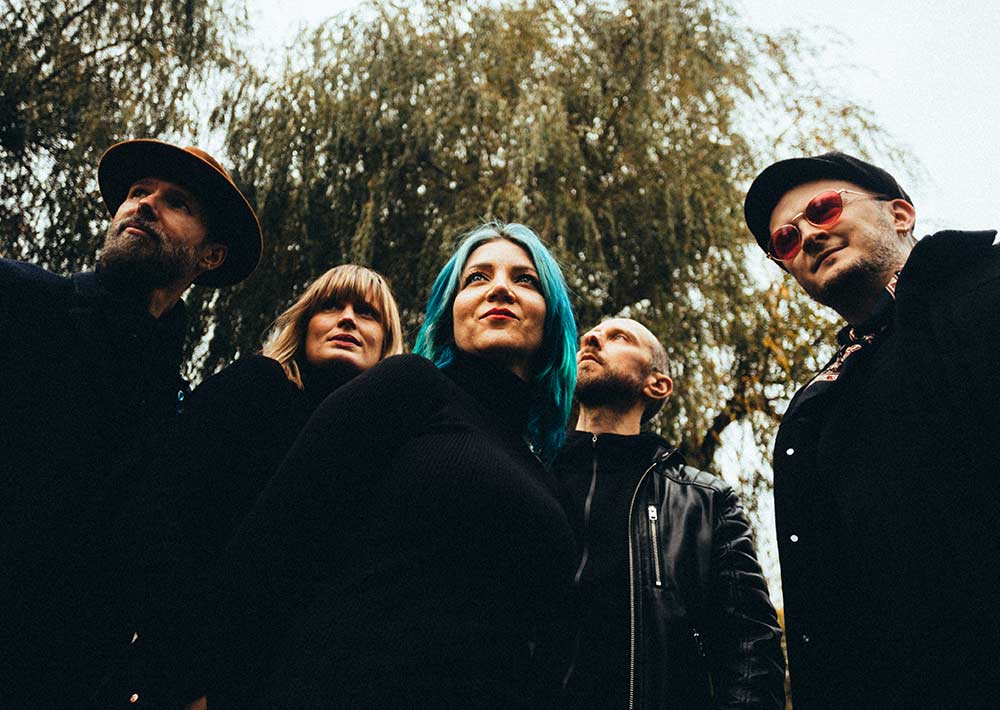
Beaux Gris Gris’ Greta Valenti: “How can you say the most in the least amount of words?” Photo: Rob Blackham
Want to write songs that connect with a live audience? This blues-rock outfit have all the tips you will need
To truly appreciate Beaux Gris Gris & The Apocalypse you need to see them live. On stage, the blues-rock outfit fronted by singer Greta Valenti and guitarist Robin Davey are free to let loose, tap into their emotions and give over to their mischievous side when the mood so takes them. Marrying serious technical prowess with that unteachable ability to connect with a crowd, the stage is where they weave serious musical magic.
That’s not to say their two studio albums aren’t packed with great songs. From stirring ballads to poppier moments – never forgetting their bluesy foundations – Love & Murder and Good Times End Times showcase both range and depth. It’s just that out on the road these songs are imbued with a different energy, shifting shape from night to night. That pulsating charge can be heard on new record Live In The UK 2023. The album is a great document on how a song can change each time it’s performed, not frozen in time in the studio to be replicated ad nauseam.
With the band set to return to the UK next month, we caught up with Valenti and Davey. If you’re looking to write songs that burst into life when performed live, you’ll want to read on…
Click here for more interviews
How was the last leg of the tour?
Robin Davey: “We’ve been selling out dates, which is always nice. You don’t have that last-minute worry of having to post on every social media network. We know there’s an audience, it’s nice.”
Greta Valenti: “Like a lot of bands, we had a lot of momentum pre-pandemic, and then it was like starting over and everyone’s broke. Post-pandemic, people were scared to go to shows. So I feel like this is the first tour where it’s like, ‘Oh, we might not lose money.’”
Are you ever thinking about the live audience at the point you’re starting to write and record songs?
RD: “We do a song called What’s My Name. It’s a call-out of the band’s name because it’s hard to understand how to pronounce it when you first hear it.”
GV: “It’s amazing because everyone walks away knowing the name of the band. We always play it last, so it’s worked out kind of perfectly. I wrote the verses more about my personal life, but Robin wrote an amazing, catchy chorus.”
RD: “I had the chorus and then Greta gave some substance to my song. So that was one. The live set is so important to what we do. We record every live show, and we’re gonna release every live show. People will be able to go to our website/wherever we host it. The reason for that is that it changes every night. We have a rough setlist but we never stick to it.”
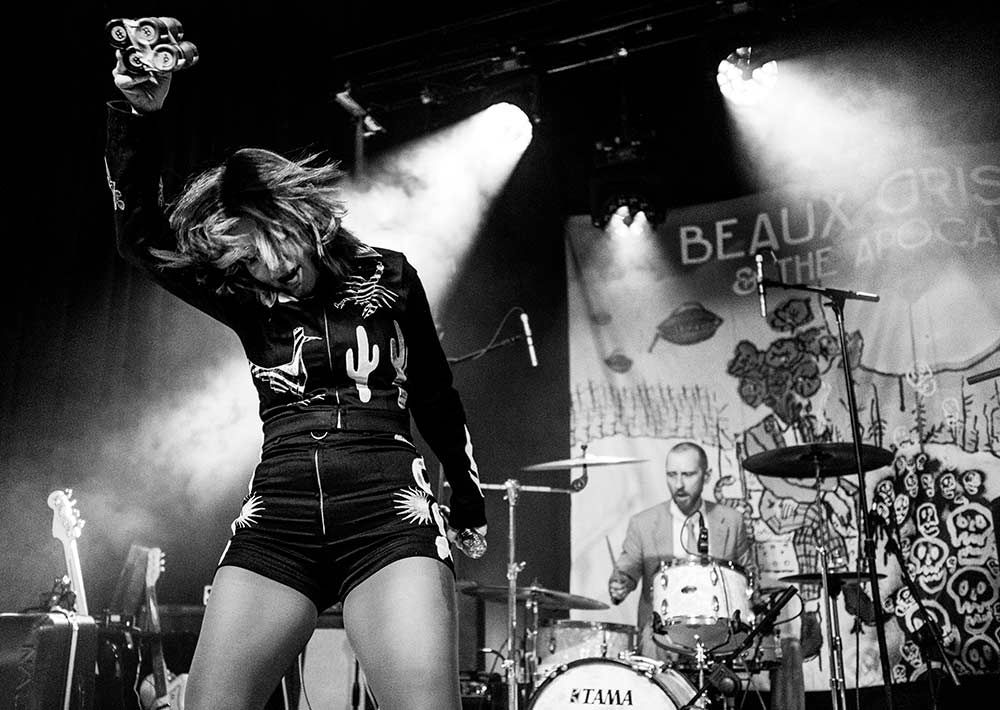
Beaux Gris Gris’ Robin Davey: “You learn so much from playing songs in front of people.” Photo: Mark Brookes
So the live element informs the majority of what you do?
GV: “I grew up doing theatre. I’ve been doing it since I was four, and Robin has always been in bands, since he was fourteen, playing for live audiences. We’re very driven towards the live performance and the live audience. I’m always picturing everything in a very three-dimensional way. When I’m writing a song, I’m picturing the music video and I’m also picturing how someone will think about this song when they’re experiencing it live.
“Also, I try not to gender my songs. We have a lot of male fans and a lot of non-binary fans. I don’t want to sing about a very specific gender and then someone feels like they can’t sing along. I want everyone to feel like they can relate to the songs.”
RD: “We have a loose structure of a setlist, but sometimes it’s like, ‘Hey, we need a mellow song to get everyone relaxed again, or we need an up song because people are losing attention.’ So when we’re writing a song for a studio album, we’re also thinking about how it pertains to the live experience, it permeates through everything.”
GV: “Because I’m so driven towards the live experience, I can’t imagine writing an album that’s all mellow or slow. In my brain, it has to have a beginning, a middle and an end. It has to be like a show. I think that’s why we’re a little bit all over the place with our genres.”
Does that mean that you don’t see the songs we hear on the two studio albums as the definitive version?
RD: “Absolutely. In fact, one of the songs, Watching The World Fall Down from the second album, we didn’t feel like it was right, so we re-did it and re-released it as a single.
GV: “It’s still not right. It was better as a single but it’s not right for live. I don’t think we’ve found the right live version yet.
“Whereas Baby Baby… That was one of the first songs I ever wrote. I held on to it for years and finally got to record it in this band. It’s on the first album. We have different players that play with us. We try to keep the same band but can’t because we travel in different countries. So different people play songs differently and some people play certain songs in a way I connect to more. I think the way Emma [Johnson] and I do Baby Baby together is the best version. I love the way we’re doing it now and the version that’s on the live album is probably my favourite version so far.”

Beaux Gris Gris: “I don’t want to sing about a very specific gender and then someone feels like they can’t sing along.” Photo: Rob Blackham
On the live album, you have songs like Baby Baby, Louisiana Good Ride and Thrill Me that are quite elongated compared to the album. You’re clearly not trying to replicate those studio versions…
RD: “I think we just forget what the original was…”
GV: “…Nooo! Both albums that we’ve done so far, we’ve had some of the songs already and then some were written on the spot the week they got recorded. In an ideal world, I would like to write a bunch of songs, perform them live for a year, work out all the kinks and then put them on an album. So sometimes the album version is the rough version.”
RD: “Both the first two albums were recorded as a band live in our living room. The great thing about that is we’re playing the parts that sound good, we’re not going in and overdubbing them and doing all of that sort of thing. It does lend itself to tremendous evolution. I haven’t listened to that first album in a long time so you naturally find things that fit and change things.”
What are the other advantages of recording live?
RD: “I think the advantage of doing it live is that you instantly hear if the song is working or not. You can be like, ‘Does it sound good?’ ‘No,’ ‘Then let’s move on and find something that does.’ Otherwise, you’ll get a song and record every part and then you start going, ‘Oh, that isn’t working, that isn’t working…’ and you’ll change it all. That’s great but you lose the natural feel of the song, the ebb and flow of how everything’s playing and gelling together.”
Another interesting thing about the live album is that it contains more than one version of the same song. Is that to show that those same songs are different each time you play them?
GV: “A lot of times we go into the songs playing them the same way. We’re not calculating when to change them, but we know a lot of fans are at multiple shows and I don’t want them to get bored. If I’m getting bored with a song, I think that they’re getting bored with a song.
“A fun example from the other night in Ipswich, on the song Thrill Me. We were playing in a bar and Robin went out into the crowd and we couldn’t see him. He’s got a wireless mic and was doing his thing…”
RD: “…I take it down and the band disappear and I do some guitar on my own. But the band didn’t stop on this one. I can’t see the band, and they can’t see me…”
GV: “…We couldn’t see him to see when to go down, so we started getting mischievous and adding different grooves. What’s helping that is we’ve all got new in-ears. The mixes are really good and we can hear what each other is doing. Robin could hear exactly what we were doing and was able to go with it. It just makes it really fun. We came up with a new ending for that song on the spot.”
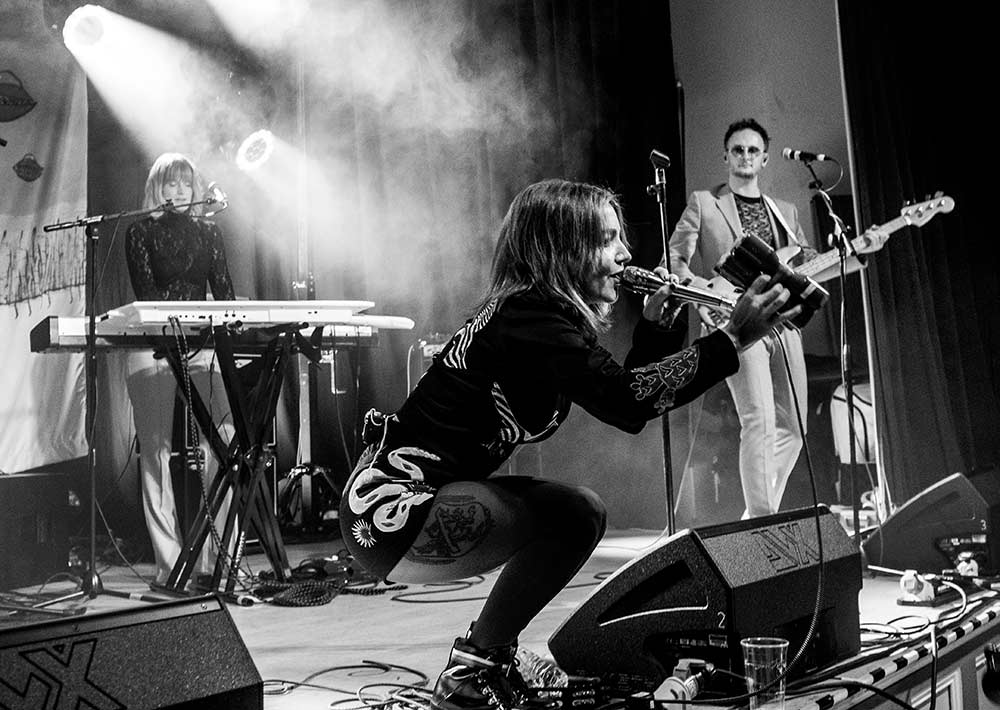
Beaux Gris Gris live. Photo: Mark Brookes
Do the audience have a role to play in that?
RD: “On the live record, a lot of disc two is from a show in Brecon. The audience became part of the show.”
GV: “They were on fire. That’s why side two is mostly Brecon. It was a small room, but they have built it where above the stage is really tall so it makes the band sound big. Then around the audience, it’s got a low ceiling so you can really hear them and they sound really close. They were drunk and having fun. It was amazing.”
RD: “The audience does become another member of the band. They’ll affect how we play the songs. It’s not like, ‘Here’s the set, you listen.’ They’ll shout out suggestions, request songs, and sometimes we haven’t played those songs in months. It really creates a unique situation.”
How about when you’re the one in the crowd?
RD: “If I go and see an act, I don’t want to see them play the record. If I’ve bought tickets, I love the band and I’ll know the record well. I want to be surprised. I want to hear where they go with it and the new life that it takes.”
GV: “I would say bands/artists like Bruce Springsteen, and even Phish…we just love that spirit and never knowing what they’re gonna play. Bruce has such a great band, and we always have amazing players with us. Emma is an amazing piano player, so I want her to be able to show off. We have a different guy, Sam [Robertson, the keyboard player in the USA], who’s a little more jazzy, and different songs will be better for him to showcase.”
You mention Bruce Springsteen, and you cover I’m On Fire on the live album, as well as Make It Wit Chu by Queens Of The Stone Age. How do you choose your cover songs and what’s the secret to making them your own?
GV: “I have to hear something about it that I know I can do in a different way. I think I’m On Fire is such a good song. I’m a simple songwriter. It’s like, ‘How can you say the most in the least amount of words?’ Bruce is a great example because he’s writing songs for the everyman. The ‘80s version has an ‘80s production on it. It still holds up and sounds great to this day, but when you play it on an acoustic guitar it’s a simple, beautiful ditty. So I was like, ‘Well, I can do it that way.’”
RD: “I’ve been amazed by how many people know that song word-for-word. Every audience, they instantly start singing. Then with Make It Wit Chu, we learned that for our rock band Well Hung Heart. I listened to the original about 10 years ago and learnt it. I haven’t heard the original since, so I don’t even know how it sounds…”
GV: “…And even our version has evolved.”
RD: “I think that’s the key. There’s a song there, just do your own thing with it”

Beaux Gris Gris’ Robin Davey: “We’re at the stage now where we understand why the things that we do connect with people.” Photo: Rob Blackham
Are there particular songs of yours that have become live favourites?
GV: “Uptempo songs are easy to get the audience involved. We used to cut out all the slow songs, because people got bored if they were in a bar drinking. But as we’re going and people are actually our fans, and we’re not having to entertain drunk people in a bar, a lot of people want to hear Alone or Bungalow Paradise, the dreamier ones. But Baby Baby has been a real winner every show, so that one’s a must-play and then everyone loves Don’t Let The Bastards Drag You Down.”
Why do you think Baby Baby resonates so much?
GV: “It’s a powerful song. I wrote it about a couple that were going through hard times, and now I sing it to myself every show. Especially in England, I think that the fact that there isn’t a queen anymore is kind of sad. What was nice about having a queen for the country was she was a mother to people. She was someone that, even if you didn’t know her, was comforting in some way.
“For me, the chorus is that, ‘Baby, baby it’s alright.’ I’m singing to the audience and I’m singing it to myself, it’s my own comforting thing. There’s a verse in it that’s about suicide and all these things. I like write songs that connect with people and connect to life. We’re all stressed at the moment. So I think that’s been a nice comforting song.”
Is getting affirmation from an audience the ultimate achievement for you as songwriters and musicians?
RD: “It’s the most satisfying thing. When we do Don’t Let The Bastards Drag You Down, everyone just automatically sings along. It’s pretty cool.”
GV: “It’s been like that the whole time with Bastards. When we first started playing that song, people would sing along, even if it was the first time they’d ever heard it. We were shocked.”
RD: “That is definitely the best hit song we’ve ever written that hasn’t been a hit.”
Are there things you’ve learned from your time on the road that you will take into your next writing and recording sessions?
RD: “You learn so much from playing songs in front of people. We’ve been doing this a while and I think there’s a point in your career where you start off and you may luck out and write a hit early on. Bands that do that, sometimes they understand why that was a hit and then they can build on that. But sometimes they don’t understand that there’s a difference between the hit song and all their other songs and then they just write all the other songs for the next album and they go, ‘Why doesn’t anyone love our new single?’
“We’re at the stage now where we understand why the things that we do connect with people. It’s not because, ‘Oh this really means something to me.’ People don’t give a shit about that, they only give a shit about what it means to them. So it’s really understanding that we can go out every night and sing songs and mean it and then when they sing it back to us, we’re like, ’Okay, great!’”
GV: “I disagree. I know what you’re saying but the lyrics do have to be personal. Take Jason Isbell, his songwriting is so personal but you can also really connect, or at least see the story that he’s telling.”
Is that what you’re striving for?
RD: “We know that our best songs are definitely in front of us. This is the learning curve… learning how to write, learning how to write with others, learning how to write for an audience, learning how to write for an album, learning how to write for a live experience, learning how to write for a band, learning how to write for the drummer that you have and the bass player that you have…
“It’s a nonstop learning process. Our lack of success is keeping that process going, because there’s still the drive to be better and to achieve more. There are a lot of artists that are in this really unique position where they’ve been under the radar all this time. They’ve got better musically, they’ve got better at songwriting, they’ve got better at performing, better at their instruments, better at singing. In the music industry, the machine keeps going but it gets less and less relevant.”
GV: “We’re just trying to find our audience, people who resonate with us.”
Are there any final tips you can share with our readers?
RD: “My main thing is… I’m not a great singer, but if I can sing a song then I know it’s okay. If I struggle to sing it, if I’m writing something and I can’t quite hit it, I know that it doesn’t have what it needs for the audience to sing it. Everyone can sing a Beatles song, Oasis and Nirvana too, it’s the same concept. So when I’m writing a song or involved in the writing, if I can’t sing it, then I don’t think it’s right.
GV: “If people are songwriters that also are performing their songs live… I’ve made the mistake of writing songs that I can’t perform night after night – maybe the notes are too high. So be aware when you’re writing songs, make sure you’re going to be able to perform that song or have a different live version. You see a lot of performers as they age that can’t hit the high notes anymore. Think about how you’re going to handle that song later. Maybe there’s an alternative version of that song, you’re lowering the key or whatever.”
RD: “One last thing I would add; I think that every musician should spend at least a year learning the intricacies of the shuffle beat – the phrasing that a shuffle beat brings to your playing and the flow. It’s the shuffle which gives you swagger and helps you find interesting phrasing within the melodies.”
Live In The United Kingdom 2023 is out now and Beaux Gris Gris & The Apocalypse will be bringing their live show back to the UK next month…
18 August — Old Bush Blues Festival
20 August — The Half Moon, London
23rd August — The Tree House at The Vine Tree, Bishops Frome
24th August — Temperance, Leamington Spa
26th August — The Long Road Festival
27th August — Great British Rhythm & Blues Festival
For tickets, head to beauxgrisgris.com
Click here for more interviews

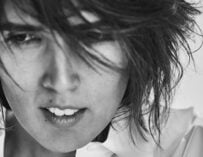
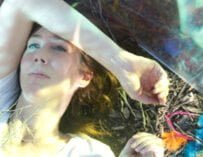



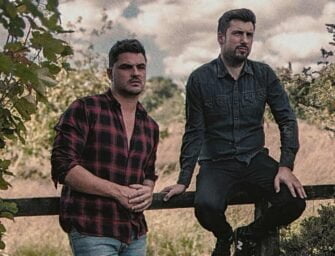

![Songwriting Credits… best new music playlist [September 2023]](https://www.songwritingmagazine.co.uk/wp-content/uploads/songwriting-credits-september-2023-335x256.jpg)






























Related Articles